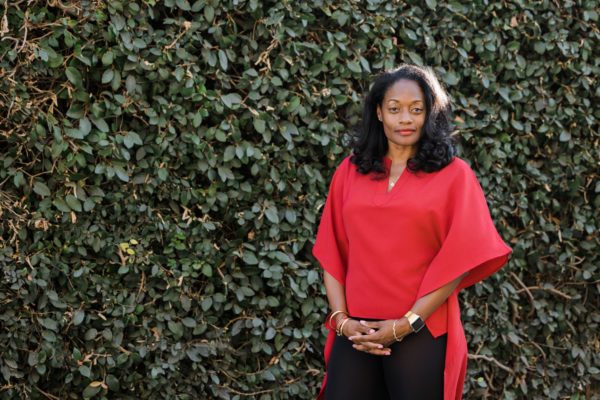By Claire Ballentine and Natasha Abellard
Schmoozing won’t get you anywhere in the CFA program.
To earn the chartered financial analyst certification, Wall Street’s aspiring asset managers need to have a stone-cold mastery of skills like valuing stocks and analyzing financial statements — not after-hours networking drinks that are hallmarks of an expensive MBA program, an alternative path to getting a job.

The CFA route has been held up as a no-nonsense, low-cost path to getting a foot in the door of the otherwise still-clubby world of high finance. The only catch? It’s never been tougher to succeed on the trio of exams.
Pass rates have plunged during the pandemic, reigniting a debate over which designation is the smartest to try to achieve to snag a Wall Street job. Only 25% of test takers passed May’s Level I exam and just 42% cleared Level III — both the lowest since testing began in 1963. At top MBA programs, graduation rates are above 90%.
It’s enough to make some question whether all the positive attributes of the CFA program — the meritocracy, the accessibility, the affordability — are outweighed by the strains on candidates’ time and effort. Especially when the majority are told they’ve failed, sometimes many times over.
“It’s an enormous sunk cost if you don’t pass,” said Paul Hoenck, an investment analyst at Parkview Advisors in London who completed the CFA program in 2017. “It’s not something you can afford to take on if it’s not where your heart is.”
Hoenck knows from experience: He failed and had to retake the Level II exam, considered by many to be the most challenging. CFA candidates on average take four to five years to get their charter, spending more than 300 hours studying for each level.
Still, the difference in cost is enormous. A candidate can pass all three exams and earn the CFA charter for less than $3,000 and study around their work schedule. Tuition for a full-time Master of Business Administration degree is upwards of $140,000 at top universities, to say nothing of potential room and board, books and lost wages for two years spent going to classes.
Both the CFA Institute and business schools dangle the prospect of high salaries to those who go through their curriculum.
The self-reported statistics don’t point to a clear winner. According to a CFA Society Chicago survey, more than one-fifth of charterholders are portfolio managers, with bond traders boasting a median total compensation of $213,000 and those in equities earning $251,500. The highest average combined salary and bonus among 2020 graduates of top MBA programs was upwards of $170,000, according to an annual survey from U.S. News. An MBA, which includes classes on leadership or marketing, also typically offers a wider potential career path than the CFA.
Some people get both. Tammy Neff originally completed her MBA, from the University of Pittsburgh, in 1994. That helped her get a job as the director of operations for a physician’s practice, but then she realized she wanted to do something more “fiscal and tangible.” So she started making her way through the CFA exams, passing Level 1 in 2001 and finishing in 2006. She’s now an equity strategist at Hefren-Tillotson Inc., where she builds portfolios of stocks that she thinks will perform well.
“To work in the investment management side where you pick stocks from the ground up, I felt like I needed that extra training and credential” that the CFA provides, she said
Robin Young, chief executive officer of the online academy Behaving Wealthy, got an MBA from Webster University in 2006. She then actually started down the path toward getting her CFA but realized she didn’t need the technical certificate to continue to build her own business.
“Credentials help you open the door, but soft skills help you close the door,” she said.
Still, Young thinks there’s merit to the CFA program — particularly for candidates who don’t have deep family connections to money and power, or who face discrimination.
“When you want to stand in front of people who may give you resistance for whatever reason — race, class or age — it really levels the playing field,” Young, who is Black, said of the CFA program.
The pitch of MBA advocates is that the path to a successful finance career isn’t entirely through textbooks. One of the main benefits of business school is the connections with professors and fellow aspiring executives.
“Whenever someone asks me if an MBA is worth it, I will tell them you’re more or less going to forget 90% of what you learn and same with the CFA program,” said Kevin Frisz, a portfolio manager at William James & Co., a small hedge fund, who got an MBA rather than a CFA.
He got his first post-MBA job because the firm was recruiting on-campus. “The value that is most lasting with the MBA is the value of the networking,” he said. “There’s really no way I could’ve gotten in the door otherwise.”
The odds of getting into Harvard Business School or the Stanford Graduate School of Business — two of the top three programs in Bloomberg’s annual rankings — are just as daunting as passing all three CFA exams in three tries. It’s an even bigger challenge with middling undergraduate grades or a mediocre Graduate Management Admissions Test (GMAT) score.
The CFA program, by contrast, abides by something closer to that famous line in the investing world: Past performance is no guarantee of future results. Anyone can take the exam, no matter their grades or background.
The time-intensive aspect of the CFA program indicates to employers that a potential job candidate is committed to a finance career, said Keith Akre, a vice president at Stillman Bank in Rockford, Illinois. He has both a CFA charter and an MBA from Western Illinois University.
“The time required is intentional and part of the process,” he said. “It’s not just is this person smart enough, but it’s measuring on a conscientiousness score to say: Is this person dedicated enough?”
More stories like this are available on bloomberg.com.




